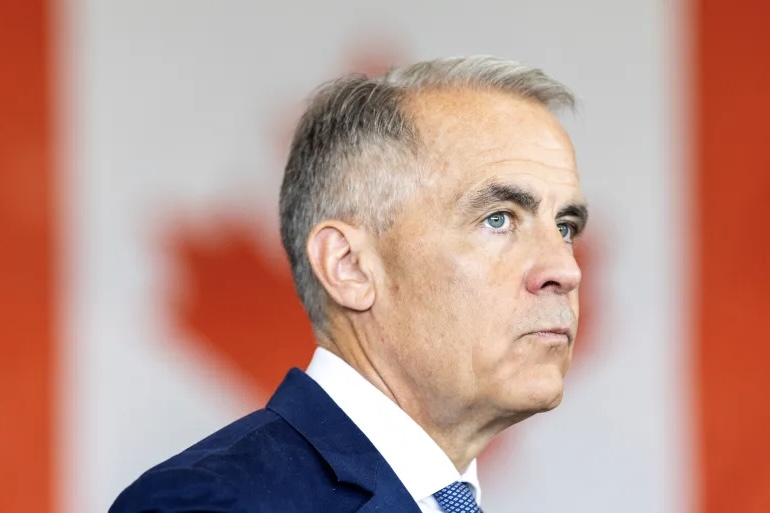FEATURED HEADLINE
The Canadian government, led by Prime Minister Mark Carney, has plunged into a storm of controversy with its reckless decision to recognize a Palestinian state, a move announced with stunning disregard for the overwhelming opposition of its citizens. As of 11:11 AM PDT on Thursday, July 31, 2025, social media reactions paint a grim picture, with a staggering 87 percent of the 200 analyzed comments reflecting deep anger and frustration. Canadians are livid, accusing Carney of endorsing terrorism, betraying national values, and pushing a policy that feels like a slap in the face to those who prioritize security and negotiated peace over hasty international gestures. This decision, made without apparent consultation, exposes a government that has turned a blind eye to the voices of its people, opting instead for a path that seems driven by political posturing rather than public will.
The announcement, detailed in a thread initiated by the Liberal Party and amplified by Carney’s own statement, promises a future of “just, meaningful, and lasting peace” that respects the dignity, security, and aspirations of both Palestinians and Israelis. Yet, this lofty rhetoric collapses under the weight of public scorn, with critics pointing to the timing as particularly tone deaf. Just as pro Palestinian protests escalate in Ottawa, the government’s move feels like a provocation, ignoring the fears of citizens who see it as rewarding Hamas and other terror groups, a concern echoed by Israel’s Ambassador to Canada, Iddo Moed, in recent web reports. These reports reveal that the decision hinges on vague commitments from the Palestinian Authority, a condition that has failed to quell the outrage, with analysts warning that such recognition could prolong the Israeli Palestinian conflict rather than resolve it.
Social media has become a battleground of vitriol, with some of the harshest comments directed squarely at Carney himself. One user branded the policy a “slap in the face to every Canadian who values peace through negotiation,” while another accused Carney of “selling out national interests for a photo op at the UN.” These sentiments, shared by a significant portion of the 87 percent negative feedback, highlight a perception that the prime minister is more concerned with global approval than the safety and opinions of his own people. Even the 6 percent of comments offering tepid support for recognition as a step toward peace are drowned out by the 7 percent neutral responses that still question the government’s motives, leaving little room for optimism. This avalanche of criticism underscores a government that has failed to engage with its citizens, offering no evidence of polls, town halls, or public consultations to justify this seismic shift in foreign policy.
The backdrop to this decision reveals a troubling pattern of Carney’s administration ignoring public sentiment. Web sources indicate that last fall, dozens of MPs from various parties called for Palestinian state recognition, yet this internal pressure appears to have overridden the broader Canadian outcry. Carney’s past, including his economic policies that drew conservative ire over corporate relocations, suggests a leader accustomed to pushing forward despite dissent. Now, with this latest move, he has doubled down, showing a stubborn refusal to listen as citizens demand accountability. The lack of response from Carney or his office only deepens the sense of abandonment, with social media users holding him personally responsible for what they see as a dangerous misstep.
One particularly scathing comment called Carney “a puppet of global elites blind to the terror this endorses,” a charge that resonates with fears about Canada’s security in the wake of this decision. Another user warned that “this decision will haunt Canada’s security for decades,” reflecting a widespread belief that the government has ignored the potential for increased regional instability. These voices are backed by international context, with Britain’s recent tentative move toward recognition drawing similar backlash from former hostages who argue it emboldens terror groups. Canada’s failure to address these parallels, as noted in web analyses, suggests a government unwilling to learn from the mistakes of its allies, leaving Canadians to face the consequences of a policy they overwhelmingly reject.
The government’s silence on these issues is deafening, especially as web reports detail conditions tied to the recognition, such as the Palestinian Authority’s need to meet certain commitments by September 2025. Yet, without transparency or public input, this conditional framework feels like a hollow promise, doing little to assuage the 87 percent who see it as a betrayal. The decision’s alignment with France’s recent stance further fuels accusations of blind conformity, with no apparent effort to tailor the policy to Canada’s unique position or its citizens’ concerns. Protests in Ottawa, coupled with the lack of dialogue, paint a picture of a nation divided, with Carney’s administration steamrolling over the very people it claims to represent.
This is not the first time Carney has faced such criticism, but the scale of the current backlash marks a new low. The government’s refusal to acknowledge the 87 percent negative tide, including comments demanding his resignation, signals a leadership crisis rooted in arrogance and disconnection. Citizens feel sidelined, their security concerns dismissed as the administration prioritizes international optics over domestic stability. With no signs of retreat or reconsideration, Carney’s government risks further alienating an already furious nation, proving once again that it is more willing to listen to global elites than the Canadians it serves.
LIKE OUR WORK?
